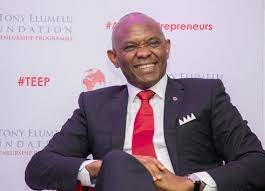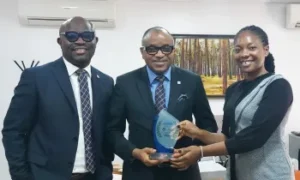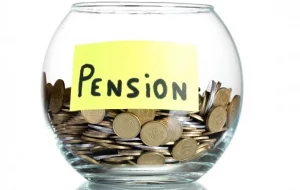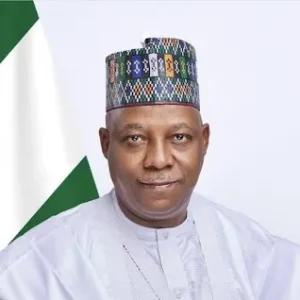
The Tony Elumelu Foundation (TEF), has played host to a delegation of the European Commission, the executive arm of the European Union (EU), currently on a tour across Africa to engage critical stakeholders on the modalities of channelling €150 billion investment the Union earmarked for the continent in the next seven years.
The investment would take as much as half of the EU’s Global Gateway scheme, unveiled in December to strengthen Europe’s supply chain and fight climate change impacts across health, energy and transport.
At another meeting with members of the European Business Chamber Nigeria (EuroCham), in Lagos, the delegation discussed opportunities and challenges of doing business in the country.
The roundtable was held ahead of a meeting between the EU Commission Vice President, Margrethe Vestager, and top Nigerian government officials in Abuja this week.
EuroCham is a business group uniting the main European investors and corporate organisations in Nigeria. It was launched at the EU-Nigeria Business Forum in October 2018.
“The meeting gave us an opportunity again to underline the fact that trade and investment are very much on top of our priorities, and they are also key priorities in the partnership between the EU and Nigeria,” said the EU Ambassador in Nigeria, Samuela Isopi.
“The EU, as a bloc, is already Nigeria’s largest trading partner; the EU is a very important investor in Nigeria. We have European companies that have been here for a long time, creating jobs and contributing to the economic development of the country,” she said.
European-owned businesses in Nigeria stretch from the oil sector to the non-oil area including construction, technology, food among others.
Isopi said the EU would continue its dialogue with the Nigerian government on how to reinforce the economic partnership between the two entities.
The meeting afforded members of EuroCham the opportunity to highlight some of the challenges their businesses face in the country.
“These challenges are faced by both European and Nigerian companies and the companies of any other country. So this is part of our dialogue, to see how together we can help improve the business environment and how together we can actually deal with these challenges,” Ms Isopi said.
EU Delegation to Nigeria and ECOWAS’ Head of Trade and Economics Section, John Taylor, said as Nigeria’s largest trading partner, the EU is committed to supporting the Nigerian government in developing the economy.
“When you look at the statistics produced by the National Bureau of Statistics (NBS), we have exported from Nigeria to Spain, Germany, Netherlands and France. When he adds up all those countries referred to as the EU, we are actually the largest trading partner,” he said.
At the meeting with the TAF team, Adviser to EU Executive Vice-President, Alejandro Cainzos, said the Union would invest at least €820 million in Nigeria’s digital transformation, hoping this would benefit start-ups and other businesses run by women and children.
According to the concept document, the investment would be drawn from the Global Gateway Initiative Fund. The amount comprises €60 million grant and €660 million loans, which will be administered as part of the EU’s aim to compressively support Nigeria’s digital transformation strategy.
As part of the breakdown, the European Investment Bank will invest €100 million to expand secure 4G connectivity in Lagos and Ogun states. The bank also hopes to invest €250 million to strengthen Nigeria’s digital identity infrastructure.
Other areas of support, Cainzos disclosed, are digitalisation of public services, digital governance, digital skills and digital entrepreneurship.
He believes the growth of the digital economy will strengthen the EU-Nigeria partnership in the coming years and create more opportunities for the private sector to excel.
He said the tour was to enable the EU to know first-hand “where real change is happening” and that he was impressed by testimonies of youths and women who benefited from TEF’s grants.
Other members of the delegation said TEF’s vision resonated with what the EU stands for, adding that inspiring the private sector operators, especially women and youths is central to its agenda for Africa.
Chief Executive Officer of the Foundation, Ifeyinwa Ugochukwu, who received the team, said TEF would continue to inspire young people to explore their talents to drive economic development across Africa.







